Competency-Based Learning: Definitions, Policies, and Factors Related to Implementation

This report reviews state legislation and education policies related to competency-based learning and graduation requirements in the seven northeast states in the REL Northeast and Islands Region. The study addresses three research questions: How is competency-based learning defined in state and district policies in the REL Northeast & Islands Region? How is competency defined by the… Read More ›
Students at the Center Research Series
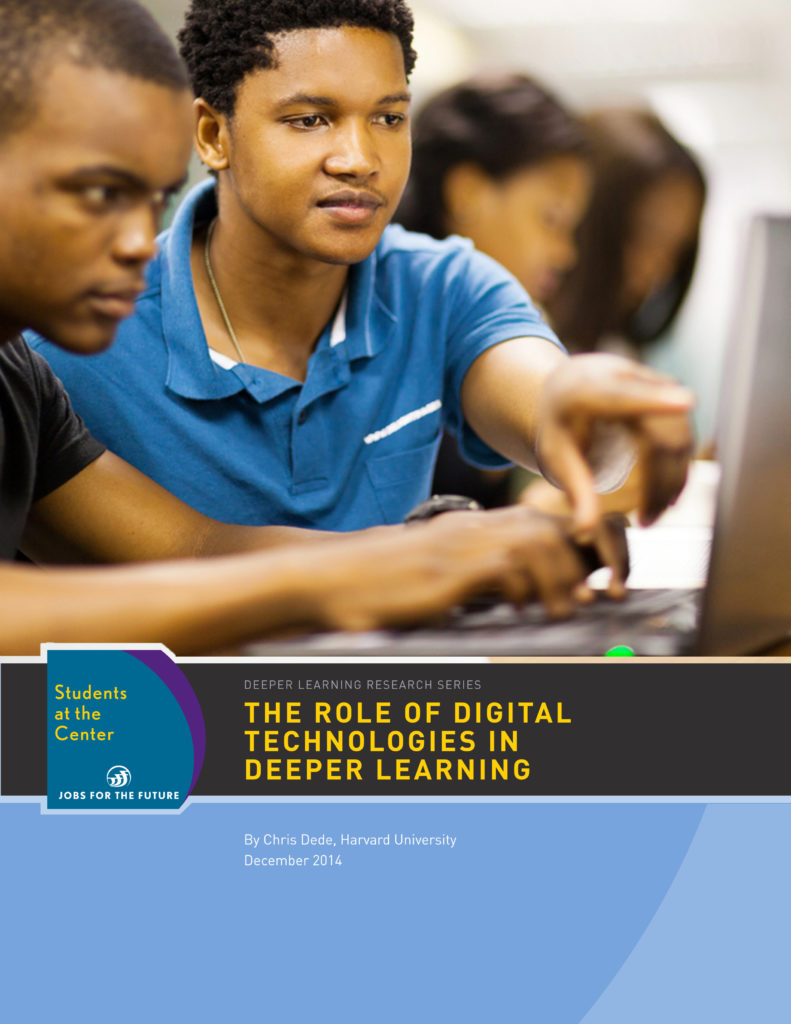
Students at the Center began with a series of nine research papers, developed in partnership between Jobs for the Future and the Nellie Mae Education Foundation, drawing attention to the importance of engaging each student in acquiring the skills, knowledge and expertise needed for success in college and a career. In fall 2013, Students at… Read More ›
The Underutilized Potential of Teacher to Parent Communication: Evidence from a Field Experiment

This paper documents the findings of a study performed in which teachers and school administrators in a summer high school credit-recovery program sent weekly one-sentence messages via text message, email, or phone call to parents regarding their children’s performance. The findings show that communication between the school, teachers, and parents is imperative for the success of the children. Source Organization:… Read More ›
Keeping Pace with K-12 Digital Learning: An Annual Reivew of Policy and Practice (2014)
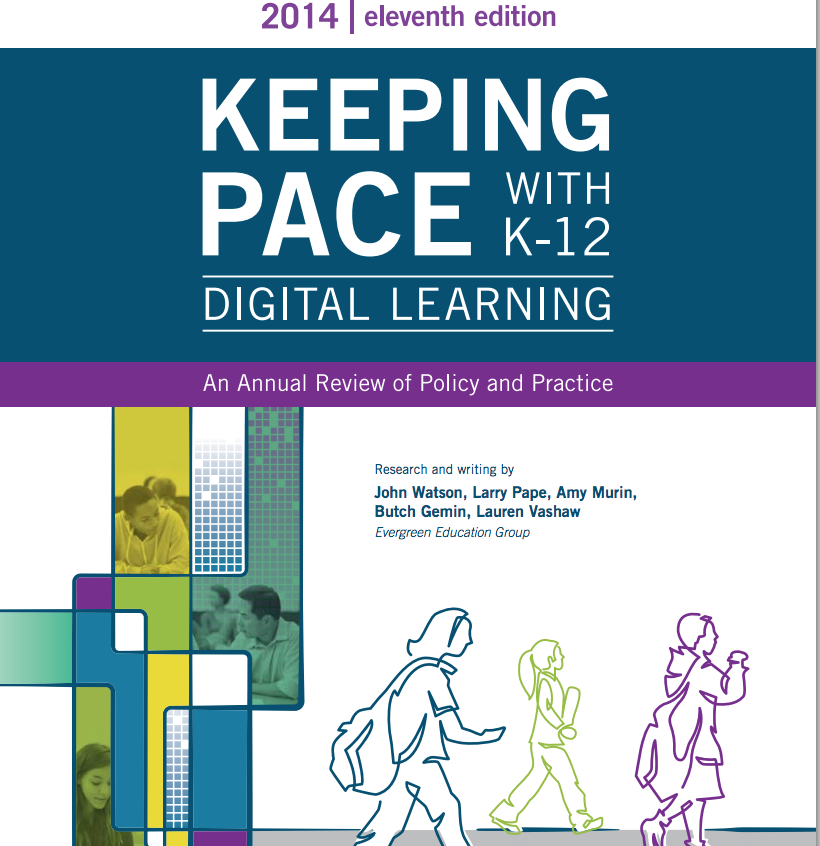
This report documents the state of digital learning across the country. First the authors report on the types and prevalence of digital learning programs across the nation, including statewide fully online schools, state virtual schools offering supplemental courses, course-choice programs offering supplemental courses from a variety of providers, schools that blend online with more traditional… Read More ›
A New Wave of Evidence: The Impact of School, Family, and Community Connections on Student Achievement
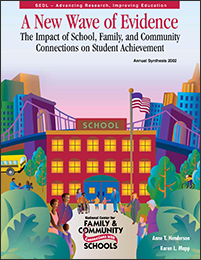
This often-cited report synthesizes over 50 research studies on the impact of family and community involvement on academic outcomes conducted between 1995 and 2002. The authors provide an overview synthesis of findings across the studies as well as a detailed summary of each individual study. The synthesis of the research studies found that parents of… Read More ›
Deeper Learning for Students with Disabilities
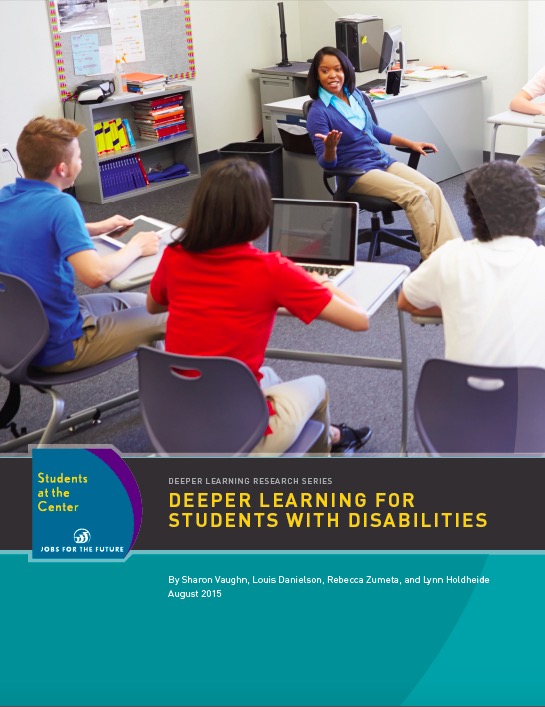
This report focuses on deeper learning for students with disabilities. The U.S. Department of Education’s Office of Special Education Programs now requires states to fully disclose the precise steps they will take to ensure better outcomes for students with disabilities. This new requirement can aid educators in implementing effective practices for providing deeper learning opportunities… Read More ›
Reimagining Parent Engagement in California: Moving from 1.0 to 2.0
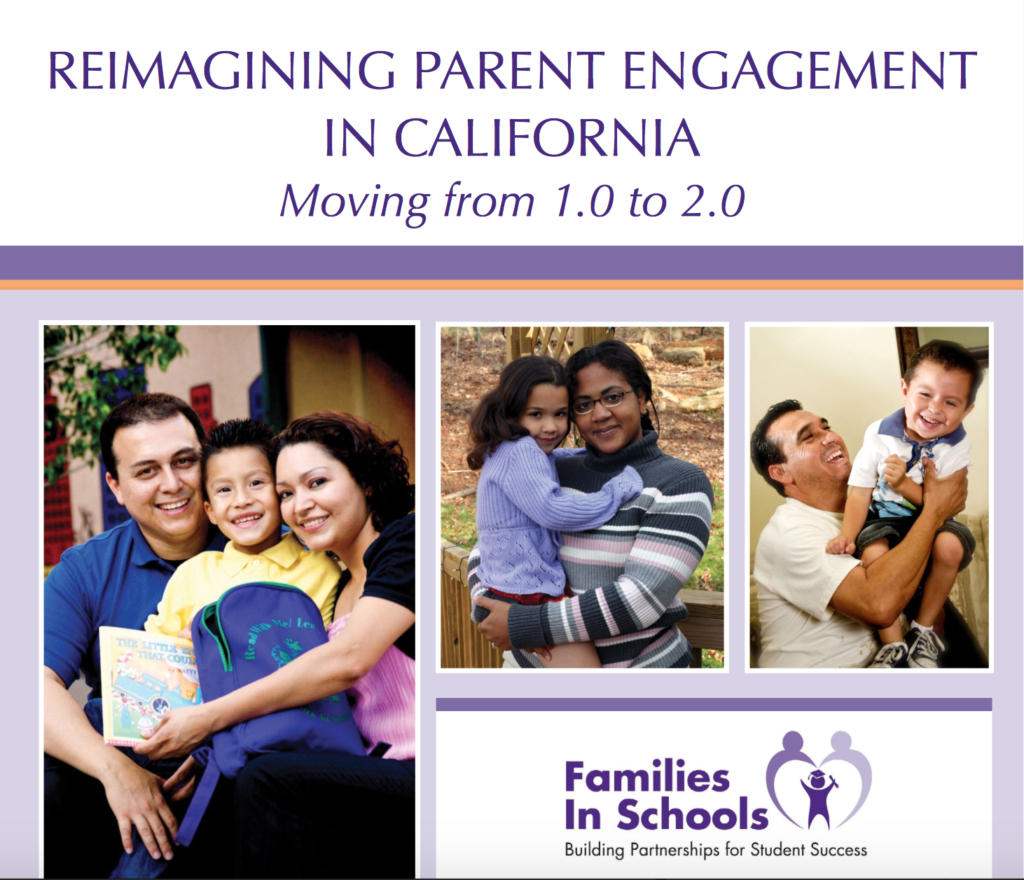
This report explores the characteristics of family-friendly schools. It presents clear indicators in key areas: welcoming environment, effective family-school communication, meaningful resources, shared leadership, conflict resolution, and financial resources. Though designed by family advocates to help the state of California create regulations, this guide could be used by any school to asses its level of family… Read More ›
Building Local Leadership for Change: A National Scan of Parent Leadership Training Programs
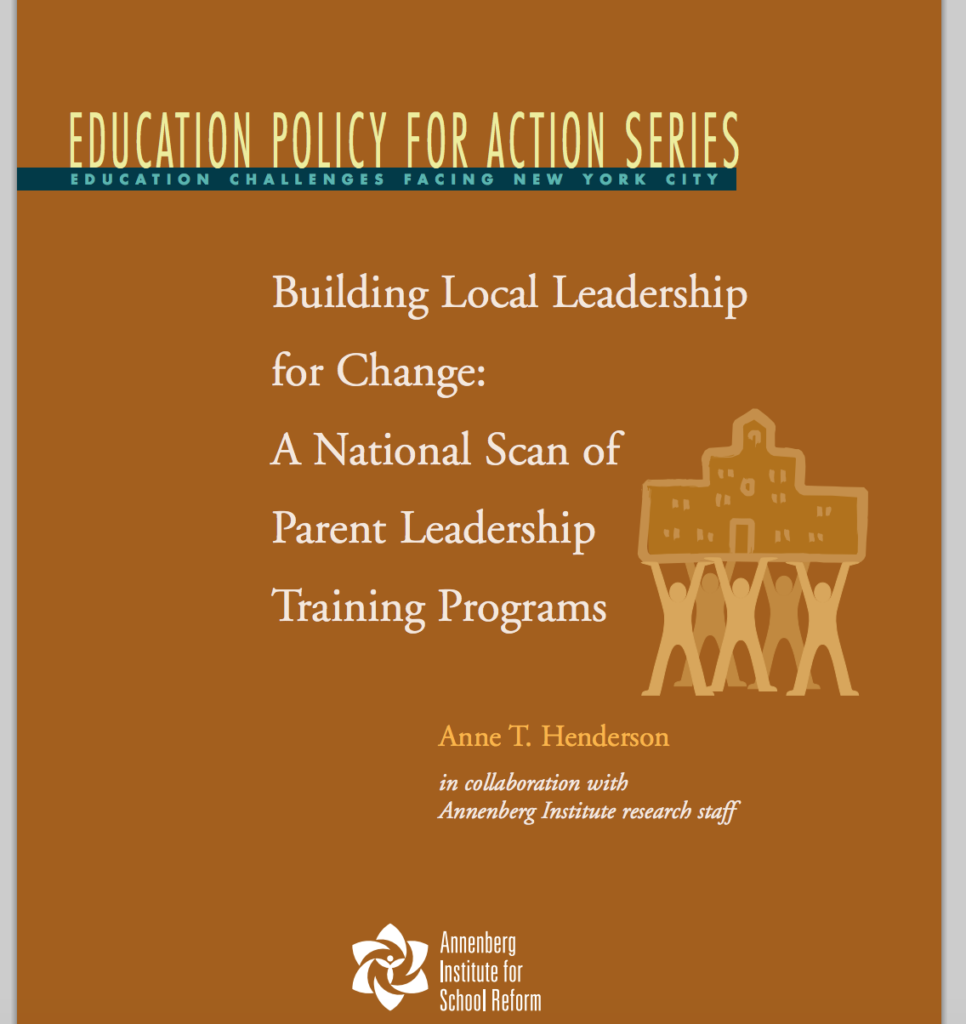
This report, while written to inform the development of parent training centers in NYC, provides an excellent overview of four exemplary parent training programs that may be of interest to any school or district that wants to begin or strengthen their own program. A scan of national programs revealed four major types of parent training… Read More ›
Implementing Competency Education in K-12 Systems: Insights from Local Leaders
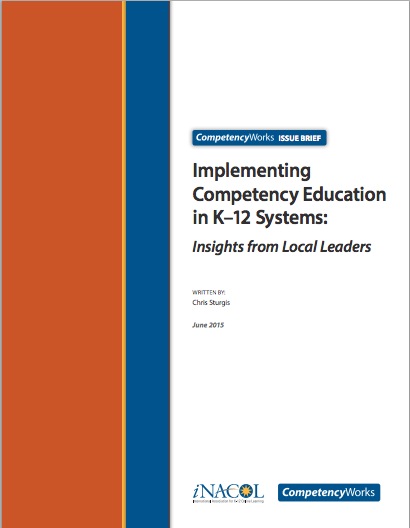
This report describes effective district implementation strategies to convert traditional, one-size-fits-all models of education into more personalized, competency-based learning environments to meet students’ needs. It highlights strategies to engage, motivate, and teach all students to proficiency and mastery, depicts shifts in instruction toward deeper learning and meaningful assessments for learning, while exploring models of distributed leadership and… Read More ›
Student-Centered Learning: Functional Requirements for Integrated Systems to Optimize Learning
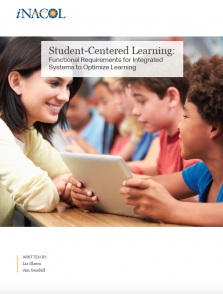
This paper illustrates the technical requirements and functionalities that learning management systems need to shift toward student-centered instructional models. This comprehensive framework will help districts and schools determine what systems to use as they begin their journey toward student-centered learning, as well as how systems integration aligns with their organizational vision, educational goals and strategic plans.… Read More ›
Centered on Results: Assessing the Impact of Student-centered Learning
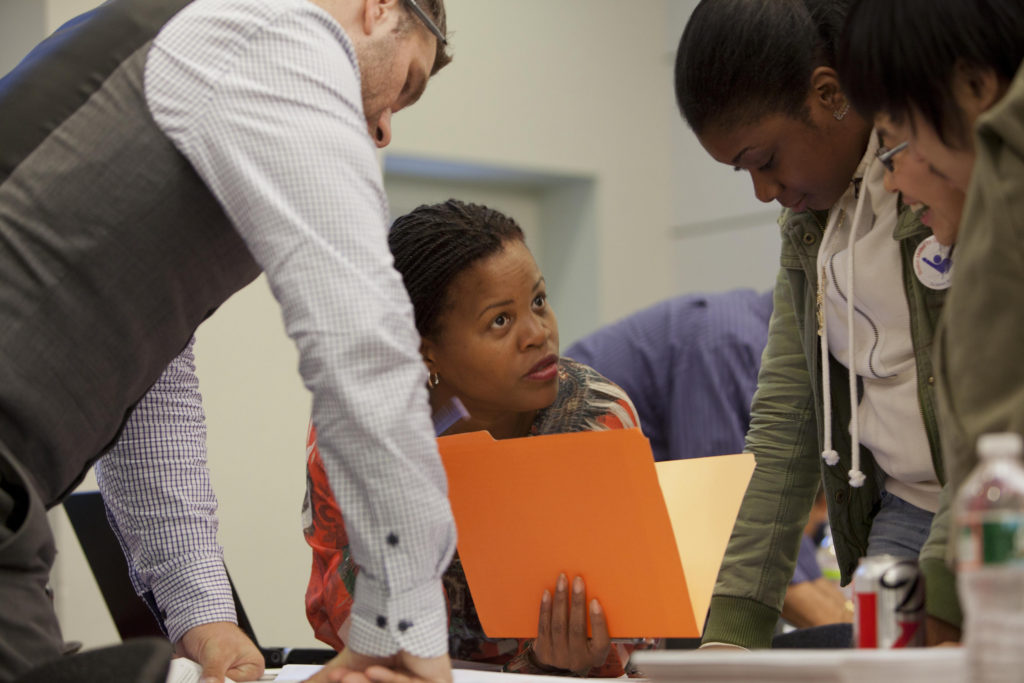
This report, a series of studies recently commissioned by the Nellie Mae Education Foundation to address the empirical research on SCL’s impact in K-12 classrooms, evaluates the effects of a variety of student-centered practices in secondary schools. The outcomes of this study were largely positive, demonstrating meaningful effects on student achievement and engagement. Source Organization:… Read More ›
Building Consensus and Momentum: A Policy and Political Landscape for K-12 Competency Education

This report by KnowledgeWorks’, with support from the Nellie Mae Education Foundation, addresses three policy areas to focus on in building an educational system that supports competency education. By focusing on these areas, states would be given the flexibility needed to innovate, evaluate, and build systems that positively impact student achievement. Competency education cannot be… Read More ›